
Incorporating big data is essential as it can help explain failures in medical practice, accumulate patient information, and perform a variety of other useful functions, explained Lonny Reisman, MD, CEO of HealthReveal.

Incorporating big data is essential as it can help explain failures in medical practice, accumulate patient information, and perform a variety of other useful functions, explained Lonny Reisman, MD, CEO of HealthReveal.
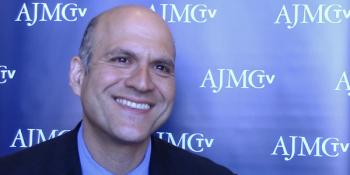
One of the biggest concerns Farzad Mostashari, MD, chief executive officer of Aledade, has about accountable care organizations, is that they are going to experience backlash similar to what managed care has received in the past.

Panelists at the policy summit hosted by National Comprehensive Cancer Network agreed that sharing information can help create a learning system that can improve patient outcomes.

A recent study of the Department of Veterans Affairs’ Web-based patient portal, My HealtheVet, found a small, statistically significant and potentially meaningful improvement in diabetes-related physiologic measures among patients who started and sustained use of the portal's features.

Gregory C. Simon, executive director, White House Cancer Task Force, spoke at the National Comprehensive Cancer Network Policy Summit, held just 2 days before the Cancer Moonshot Summit.

When comparing a private practice with a larger healthcare system, Linda Bosserman, MD, assistant clinical professor and staff physician, City of Hope, said that the challenges can run across the system.

Data interoperability remains a challenge among practicing physicians and health plans, mainly because each system operates on its own standards and vocabulary, explained Jason C. Goldwater, MA, MPA, senior director, National Quality Forum.

Maximizing the utility of technology platforms and making them meaningful to ensure quality cancer care was the underlying theme of Emerging Issues and Opportunities in Health Information Technology, a National Comprehensive Cancer Network Policy Summit.

Although physiologic vital signs tell healthcare providers a great deal about their patients’ health status, providers need, but don’t have ready access to, information about their patients’ neighborhoods.

Healthcare informatics have improved education programs and initiatives as patient data becomes more open. However, data should be more widely shared, especially between employers and clinical providers, in order to better eliminate barriers to care access, said Karen van Caulil, PhD, president and CEO of the Florida Health Care Coalition.

What we're reading, June 20, 2016: employers are cutting back on wellness benefits; new apps and websites provide birth control prescriptions to women; and Novartis pledges to triple the number of biosimilar drugs on the market by 2020.

As America’s Health Insurance Plans’ Institute & Expo kicked off in Las Vegas on June 15, Susan Dentzer, president and CEO of The Network for Excellence in Health Innovation, moderated a panel discussion on the possibility of delivery better healthcare at a lower cost.

CancerLinQ is a big data platform developed by the American Society of Clinical Oncology (ASCO) that aggregates clinical data from electronic health records for quality benchmarking and hypothesis generation. Such observational data can complement traditional evidence but must be used with caution.

Healthcare providers are facing a syndrome called “EHR alert fatigue,” a product of the constant bombardment of health alerts on electronic health records (EHRs). How are providers and health systems reacting to this issue?

What we're reading, June 15, 2016: opioids also linked to heart-related deaths and fatalities other than overdoses; judge overrules Federal Trade Commission's efforts to block merger of Advocate Health Care and NorthShore University HealthSystem in Illinois; and using social media to monitor patients outside of the healthcare setting.

Julia Adler-Milstein, PhD, assistant professor at the School of Information and the School of Public Health at the University of Michigan, describes the challenges of data gathering, and ensuring not only that the data is accurate and complete, but that the patient can use that data and ultimately lead a healthier lifestyle with that knowledge.

Prescription drug monitoring programs have been associated with a decreased number of written prescriptions for the highly-addictive and most recently abused drug.

There is a significant variation in quality of urgent healthcare provided during virtual visits, according to a new study published in JAMA Internal Medicine.

This year at The American Journal of Managed Care's 4th annual Patient-Centered Diabetes Care meeting, select faculty provided their key takeaways from the sessions.

Lonny Reisman, MD, CEO of HealthReveal, expects big data to help achieve the triple aim goals by combining disparate sources of rich and varied information.
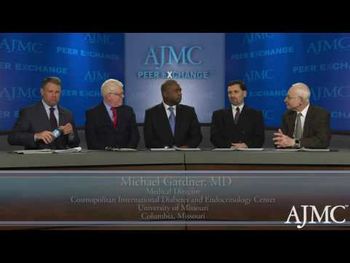
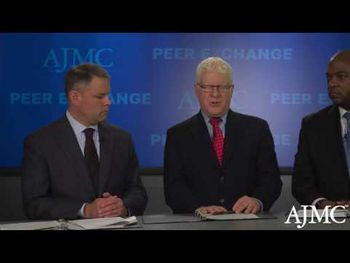
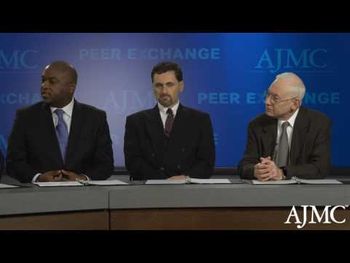
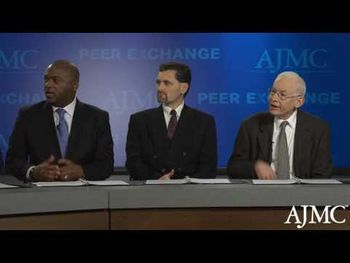
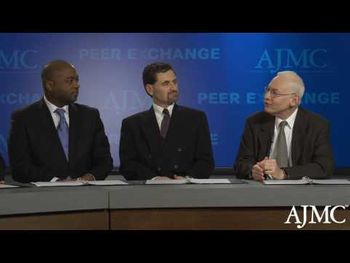

259 Prospect Plains Rd, Bldg H
Cranbury, NJ 08512
© 2025 MJH Life Sciences®
All rights reserved.
